Slow Socials are a series of gatherings from The Only Animal that invite our communities to connect through relaxed textile creation, inspiring environmental readings, eclectic music and ‘yarn-camaraderie’. Join our team in crocheting and knotting a set piece for our traveling Slow Practice installation, help with easier, relaxing activities like colour sorting yarns and threads, bring your own craft work, or catch up on some social coziness as we head into the darker months. We’ll provide thrifted materials and a beginner’s lesson at the start of each event.
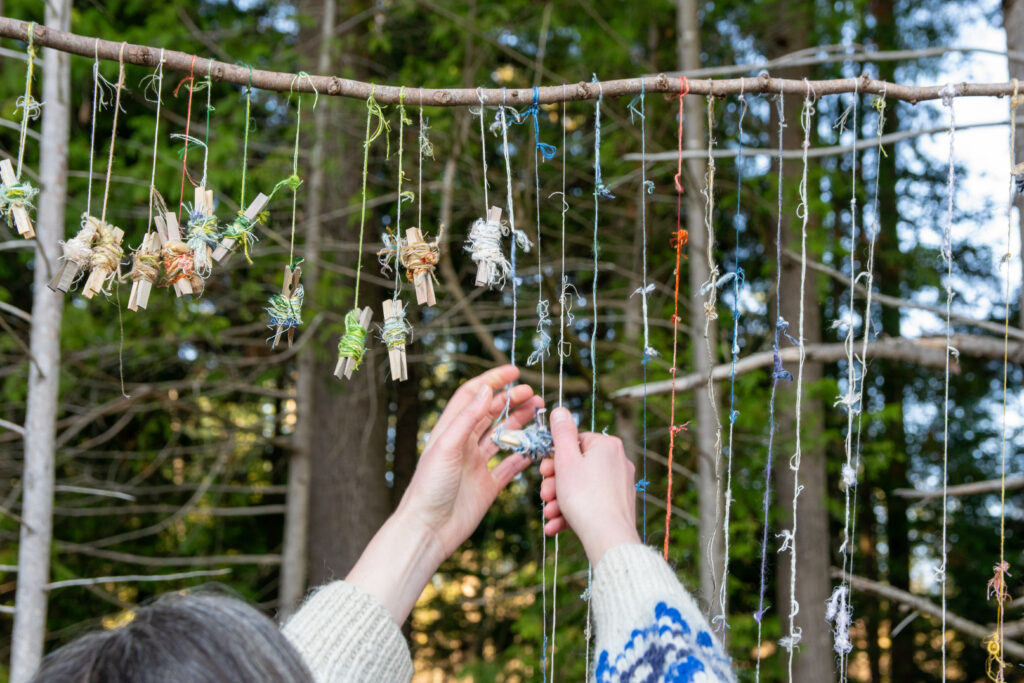
Come be part of a cultural shift that values relationships – with humans, more-than-humans and land – over capital. Let’s talk about our working conditions and how capitalist and colonial drives, to relentlessly produce and consume, are holding us back from a culture of stewardship.
We’re partnering with the Sunshine Coast Arts Council, The Roundhouse Community Centre and Vancouver Improvised Arts Society and community groups to offer Slow Socials across the province. To receive invitations for upcoming Slow Socials, subscribe to The Only Animal’s newsletter.
The Only Animal and West Coast String Summit 2024 present Slow Social | #4
Saturday, May 25; 5-7:30pm (FREE)
The Ironworks, Back Room (235 Alexander Street)
For Slow Social #4 we’ll be hearing themed readings by Julia Ulehla alongside musical performances by Toni-Leah C. Yake and Anju Singh.
Featuring
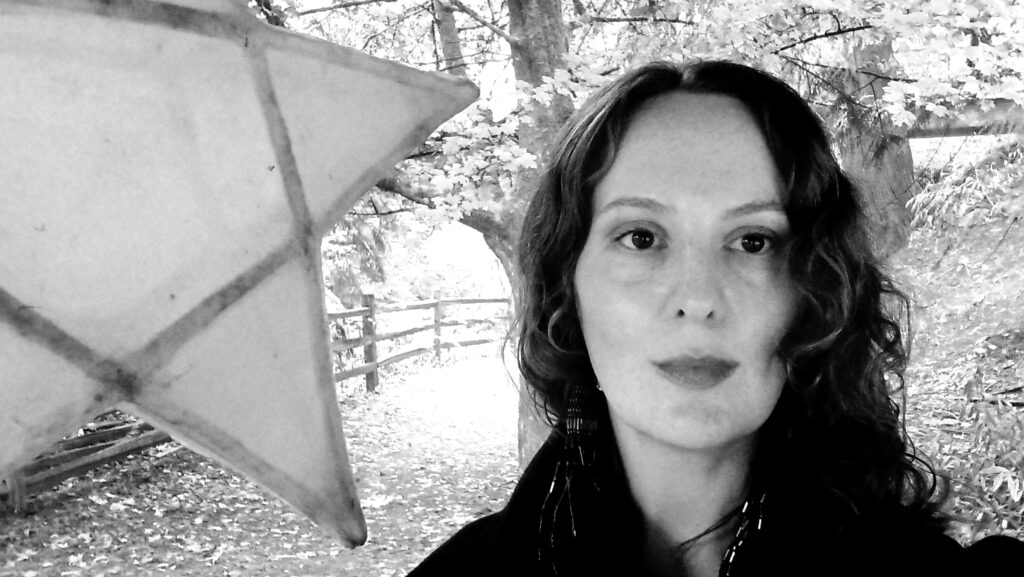
Toni-Leah C. Yake
Toni-Leah C. Yake (European; Kanien’kehá:ka, Six Nations of the Grand River Territory, Turtle Clan) is a composer-performer and media artist residing on xwməθkwəy̓ əm, Sḵwx̱ wú7mesh, and səlilwətaɬ territories. Her artistic practices are influenced by the research of kanyen’keha (Mohawk language), the interplay between conscious and unconscious realms, symbolism, and experiences of sound that generate mnemonic experiences, relationships with unseen dimensions, and connections to archaic human memories.
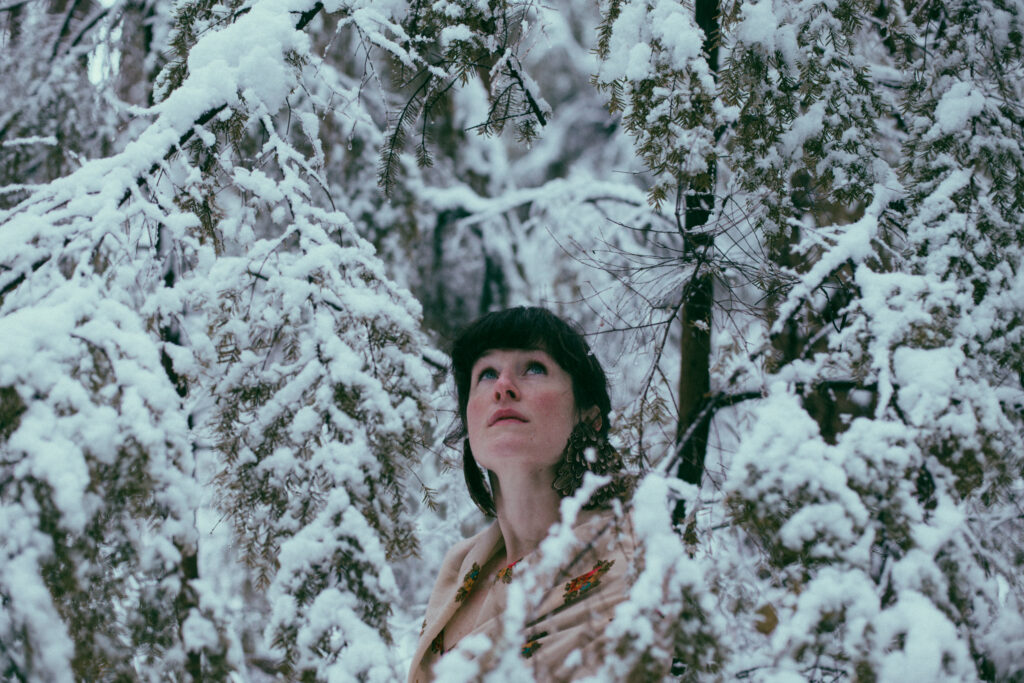
Julia Ulehla
Julia Ulehla is an interarts performer, improviser, and scholar who lives on the traditional, ancestral, unceded territories of the xʷməθkʷəy̓əm (Musqueam) people. Her performance practice, research, and writing explore song as a living being, vis-à-vis an ancestral song tradition carried by generations of her family members. Since 2013, Julia has been vocalist and bandleader of the avant-folk ensemble Dálava, with whom she regularly performs throughout North America and Europe. Other upcoming/recent projects include The Tempest Project with Music on Main, The Dardanellas at the Vancouver Jazz Festival, and Nadir Zenith at the Monheim Triennale. Julia holds a PhD in Ethnomusicology from UBC, an MMus in Vocal Performance and Literature from the Eastman School of Music, and a BA in Music (Vocal Performance) from Stanford University. Julia performed as a lyric mezzo-soprano in opera and oratorio from 2002-08, and from 2008-11 she was a member of the renowned laboratory theatre the Workcenter of Jerzy Grotowski and Thomas Richards in Pontedera, Italy. She is currently wrapping up a SSHRC Postdoctoral Fellow in Cultural Studies at Queens University. Her research-creation project explores the “extra-rational” possibilities of the voice, extending the theoretical account of living song into ethical praxis, and developing methods for voice, movement, text, image, theatre, and installation in a community of collaborative artists. Along with a small team of interarts performers, her project aims to explore how co-creative vocal exchanges might aid in developing new forms of anti-colonial analysis, and thereby generate different models for culturally- and practice-rooted forms of “sensory-formalist music analysis” (Robinson 2020) that move beyond current hegemonies of Western music analysis. Julia teaches a course in Performance and Research-Creation at UBC, and recently began as Artistic Associate at Music on Main Society where she will work to develop a platform for Musqueam, Squamish, and Tsleil-Waututh musicians.
Anju Singh
Anju Singh is a composer, musician, and media artist based in Vancouver, BC who works with traditional instruments, electronics, found sounds, custom-built instruments, photography, video, serigraphy, and film to create works that explore tension and conflict. Anju’s practice is an exploration of texture through the use of extended or experimental techniques, use of electronics, experimenting with musical and non-musical materials, and electronic processing. One of the core processes in her practice is to use methods of deconstruction and reanimation to repurpose and contextualize materials in new compositional environments. Anju’s work has been presented across Canada, in Europe, Brazil, Mexico, and the United States at festivals, galleries, and events in a variety of spaces including Fylkingen in Stockholm Sweden, Send + Receive Festival in Winnipeg, Vancouver Jazz Festival, The Polygon Gallery, Sled Island, and more recently in Copenhagen, Denmark.
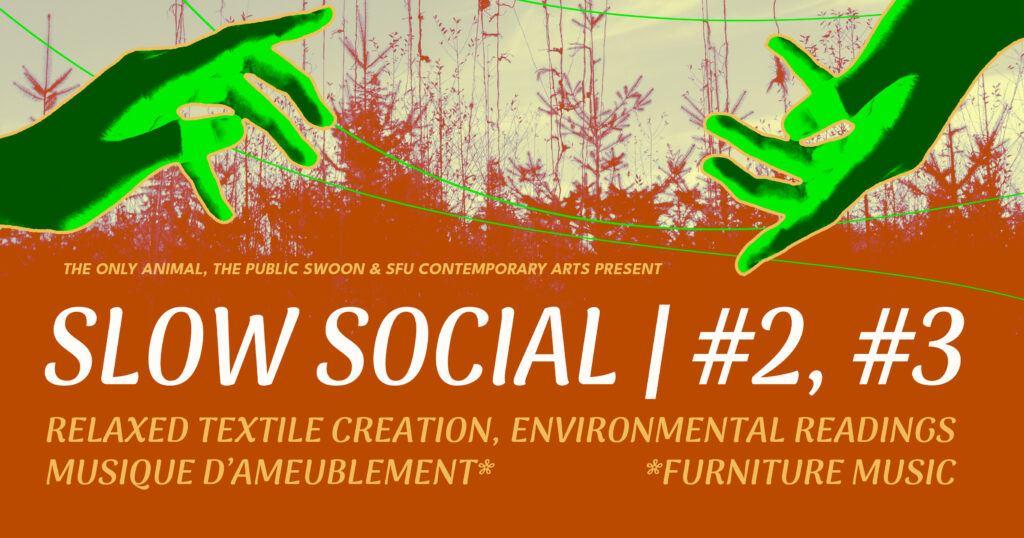
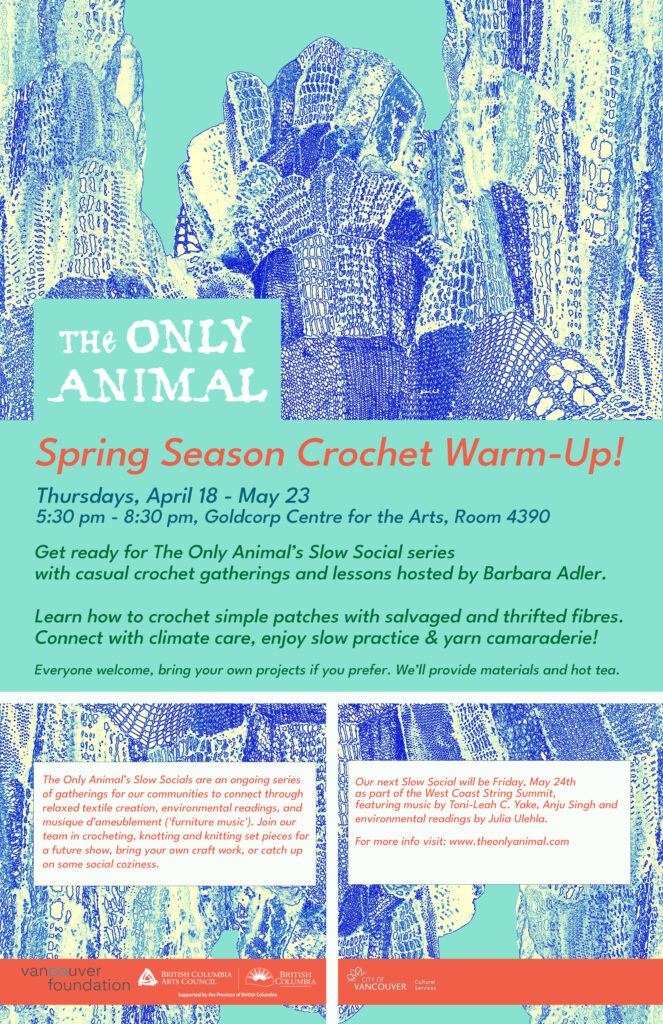
- For purposes of documentation this event may be photographed, audio recorded, and/or filmed. By attending this event, you consent to such recording media and its release, publication, exhibition or reproduction.
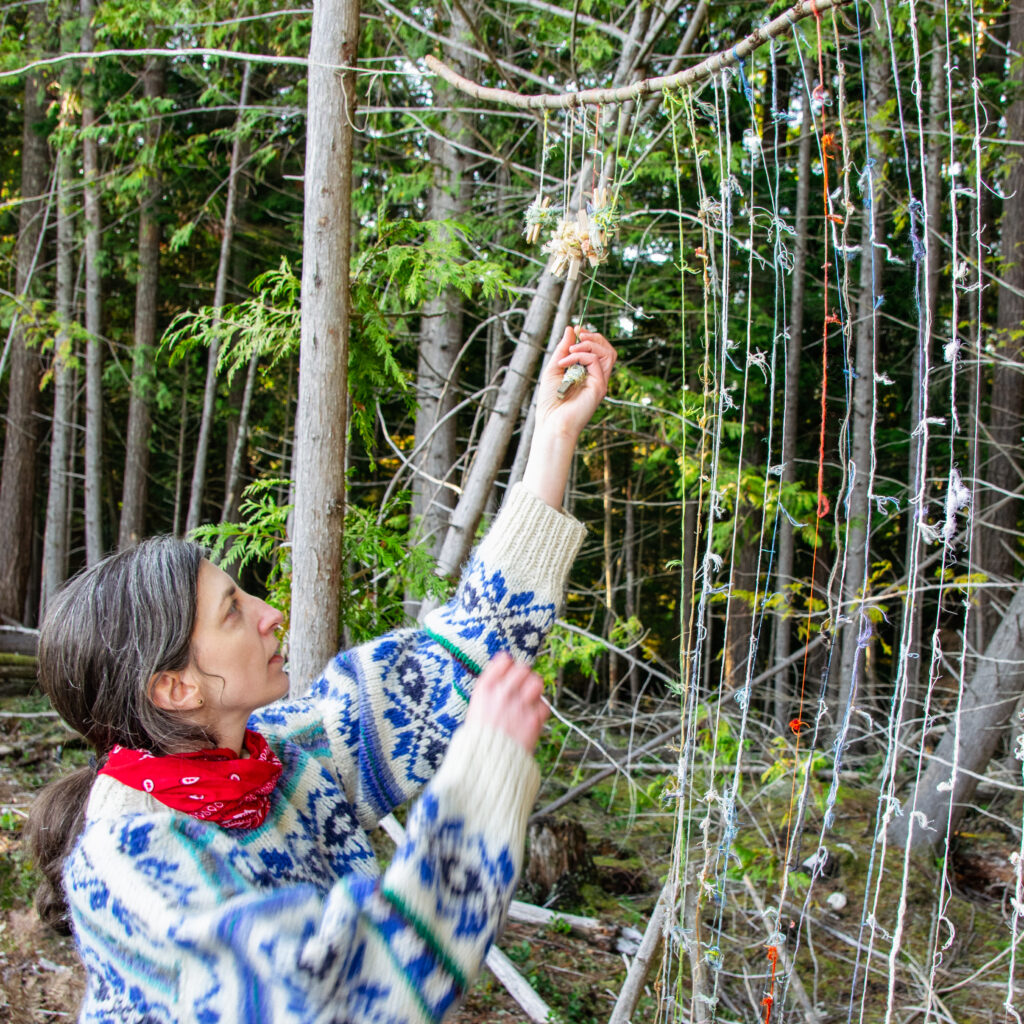
Top photo by James Meger.

